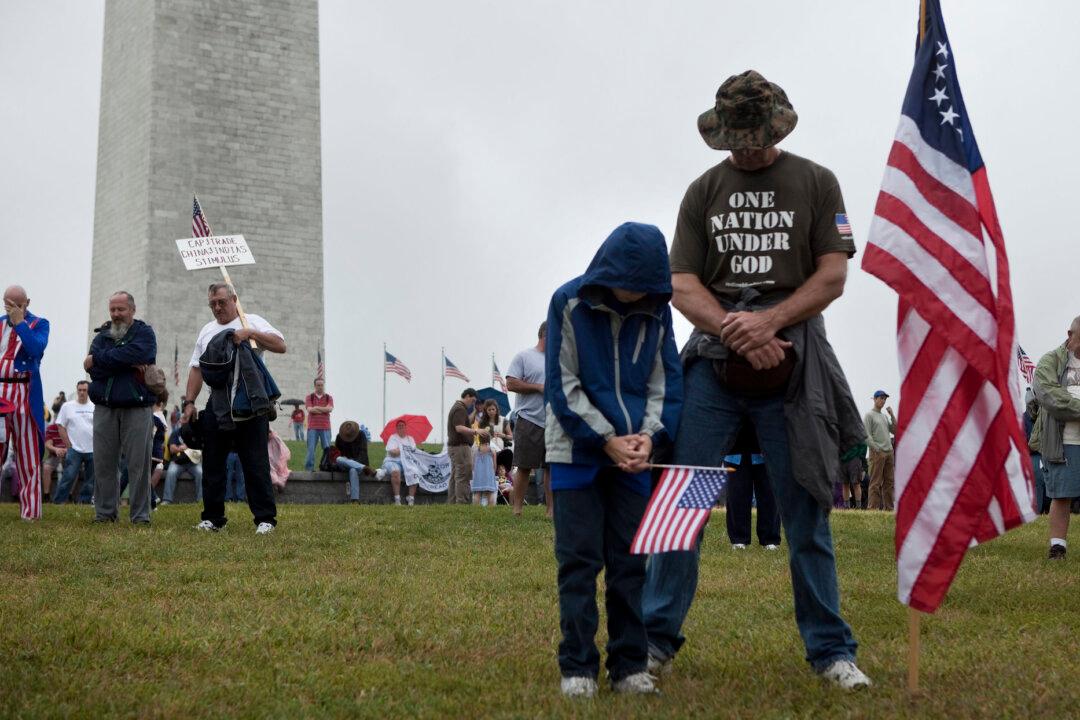The vast majority of Americans maintain a belief in God, although the percentage of those abandoning specific religions remains at a historic level, a new survey suggests.
The General Social Survey (GSS), a long-running national survey conducted by independent research organization NORC at the University of Chicago, asked a number of wide-ranging questions of the American public. The latest 2022 GSS results, released on May 17, show that only 7 percent of the respondents said that they didn’t believe in God, while another 7 percent identified as agnostic.





